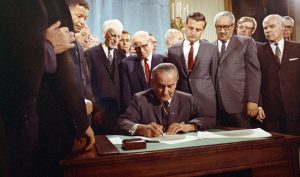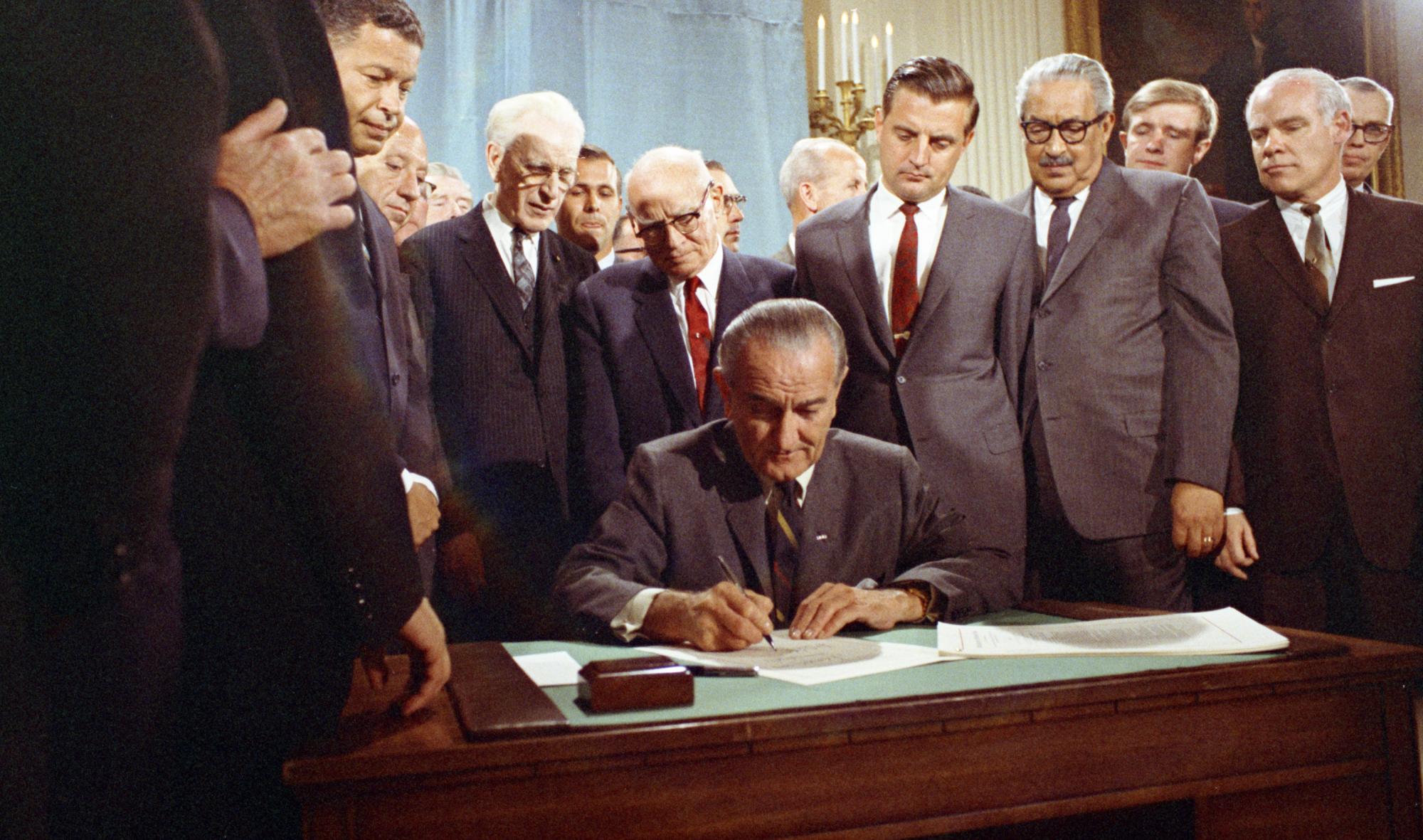
Final Passage
The passage of fair housing legislation proved to be one of the most challenging tasks of the 1960s Civil Rights Movement. In 1964 Congress passed the landmark Civil Rights Act, which explicitly dealt with voting rights, desegregation, and nondiscrimination in federally assisted programs. Yet, the legislation specifically excluded fair housing provisions for both FHA and VA insurance programs, which covered the majority of housing in the US. Two years later, in 1966, the House of Representatives passed fair housing provisions; however, it died in the Senate under threat of a filibuster. There was yet another attempt in 1967 to revive legislation; nevertheless, it never got out of committee. Once again, in 1968, President Lyndon Johnson continued the public calls for fair housing legislation.
In February of 1968, a bill prohibiting discrimination in housing was introduced by Senator Mondale of Minnesota and Senator Brooke of Massachusetts. For the third consecutive year, support for the legislation appeared dismal. Southern senators opposed the bill and created procedural roadblocks anywhere they could. Seeking to gain support from more moderate Senators, language was amended to reduce the number of housing units that would be covered under such legislation and additional provisions were added that would weaken enforcement of the bill. At the same time of the Senate debate, The Kerner Commission established by President Johnson released its report on the 1967 race riots. The report identified multiple causations and stated housing “discrimination prevents access to many non-slum areas, particularly the suburbs, where good housing exists.” The report explicitly recommended “Enact(ing) a comprehensive and enforceable federal open housing law to cover the sale or rental of all housing, including single family homes.” Finally, on March 4th, 1968 using a procedural motion known as cloture in order to end debate on the bill, the legislation was passed and sent over to the House. However, the bill would either have to be adopted by the House without change or face its final chances in a House-Senate Conference Committee. Neither option appeared promising.
Exactly one month later Dr. Martin Luther King Jr. was assassinated at a hotel in Memphis. At the time, King was an icon and the face of the Civil Rights Movement in America. Civil unrest began in hundreds of cities across the nation. The mood of the nation quickly turned to anger, outrage, and an unwavering resolve to demand action. Almost immediately after King’s assassination, over twenty House Republicans broke rank to urge the passage of the fair housing legislation. On April 10th, less than a week after King’s untimely death, the Fair Housing Act was passed by the House of Representatives by a 250 to 172 vote. A day later, President Johnson signed the bill into law with National Guard troops housed in the basement of the Capitol as protection from ongoing riots within the surrounding neighborhoods.
Tragically, it would take one of the darkest days in American history and for Dr. Martin Luther King Jr. to become a martyr to pass the 1968 Fair Housing Act. Many campaigned for safe, decent, and affordable conditions throughout the 1960s Civil Rights Movement and it took blood, sweat, and tears to accomplish just basic housing rights. Although a seminal moment in our nation’s history of housing, this story is a stark reminder of the high costs in the fight against housing discrimination.
In the last part of this series on Fair Housing, we will examine the progress made, the struggles that continue, and the hope for the future.




